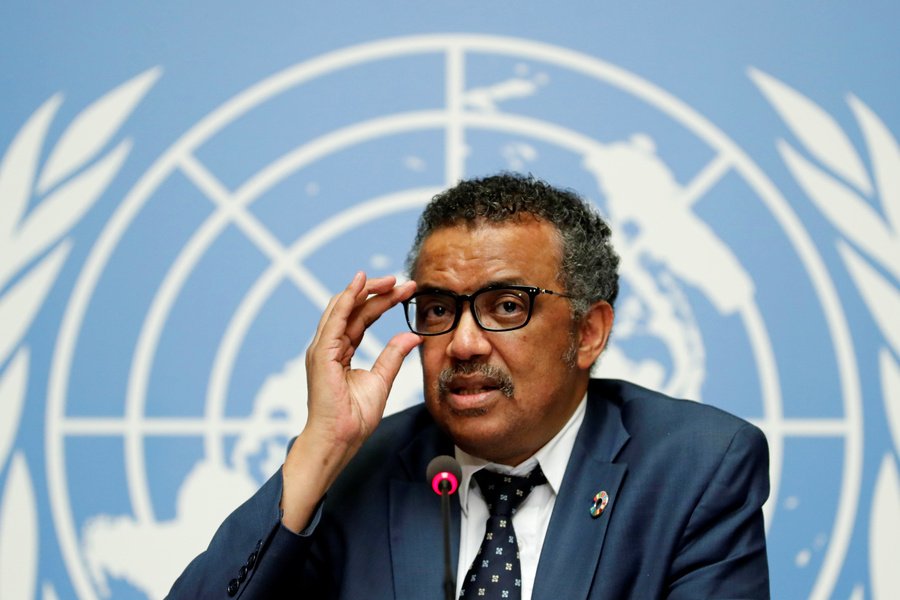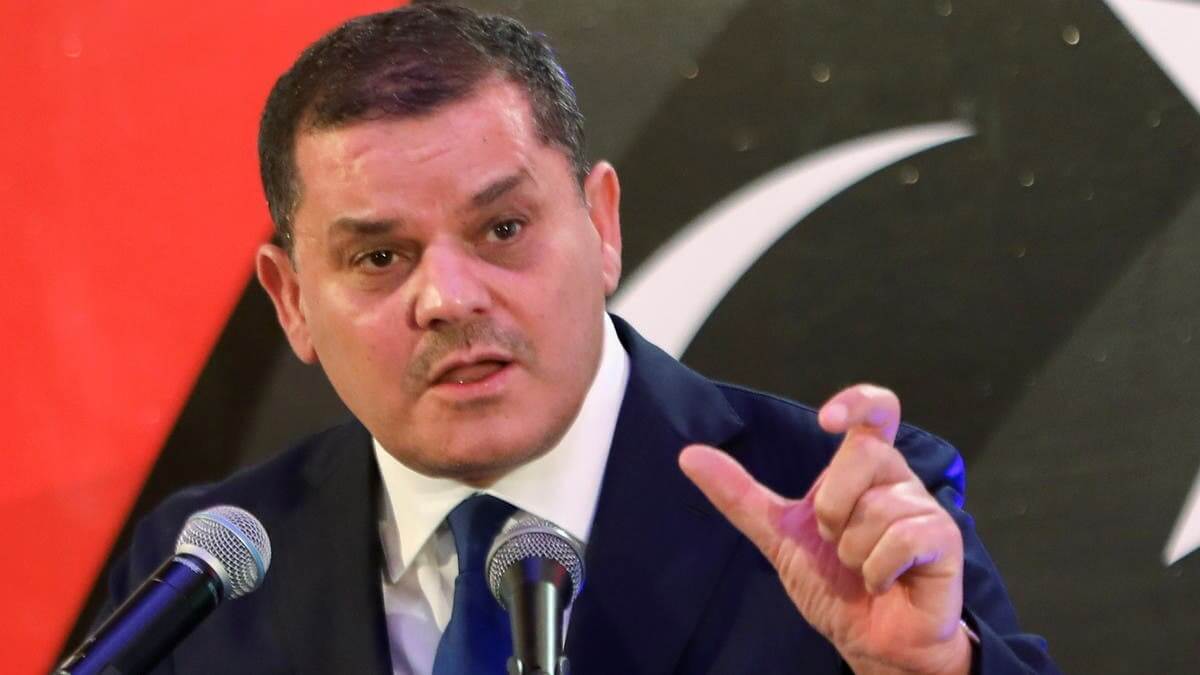South Asia
World Health Organization chief Tedros Adhanom Ghebreyesus met the Taliban’s health minister Qalander Ebad to discuss the “dire” humanitarian and health crisis in Afghanistan. Ebad is part of a Taliban delegation visiting Geneva for talks on providing humanitarian aid. [Al Jazeera]
Representatives of the European Union met with Sri Lankan diplomats in Brussels on Tuesday to hold the 24th meeting of their Joint Commission. Both sides discussed several topics, including “governance, reconciliation and human rights, trade, development cooperation, climate change and environment, security and counter-terrorism, and cooperation in multilateral fora.” [Foreign Ministry of Sri Lanka]
Central Asia and the Caucasus
Former Georgian President Mikheil Saakashvili said on Wednesday that he held several “secret” meetings in the past with Belarusian leader Alexander Lukashenko in London and urged him to not recognise the breakaway regions of Abkhazia and South Ossetia. Saakashvili did not mention the exact date of the meetings. Both regions have been under Russian occupation since Georgia was invaded in 2008. [RFE/RL]
Russian Foreign Ministry spokesperson Maria Zakharova said on Wednesday that Russia supports a planned visit by a UNESCO mission to the disputed Nagorno-Karabakh region, amid recent reports of Azerbaijan planning to erase Armenian heritage in the region. “We are in favour of the soonest organisation of the visit of the UNESCO mission to the region, we are also working through the co-chairs of the OSCE Minsk Group,” she said. [Public Radio of Armenia]
East and Southeast Asia
Days after the Myanmar army announced it had sought support from various international security organisations to help fight “terrorism,” global police body Interpol said on Thursday that it will not provide help to countries in situations that involve domestic politics. [Channel News Asia]
Vietnam on Wednesday arrested high-profile environmentalist Nguy Thi Khanh, who is known for challenging the country’s plans to increase coal power, on suspicion of tax evasion. [The Straits Times]
Europe
Hungary’s Foreign Minister Péter Szijjártó on Wednesday noted that Russian and Chinese made vaccines are yet to attain global approval despite meeting all safety and efficacy standards, adding that there is a political agenda against Moscow and Beijing. During a live broadcast on Facebook, the Foreign Minister emphasised that “saving lives cannot be a political issue” ahead of a meeting in France with European Union leaders addressing the global fight against COVID-19. [Hungary Today]
On Wednesday, Members of the European Parliament said they would set up a committee to probe the Pegasus spyware scandal. Governments used spyware worldwide to hack the phones of politicians, activists and journalists. However, spyware developed by tech company NSO Group has denied any wrongdoing and assured thorough investigation of any misuse of its technology. [Politico]
British Metropolitan Police (MPS) said it would review the decision not to investigate the Christmas Quiz party held at Downing Street held during the coronavirus restrictions. The decision comes after the Daily Mirror published a new photo of British Prime Minister Boris Johnson standing next to a staff member. Earlier, the quiz was described as a “virtual event” by Downing Street and not being investigated by the London Police. “The MPS previously assessed this event and determined that on the basis of the evidence available at that time, it did not meet the threshold for criminal investigation. That assessment is now being reviewed.” [Politico]
Latin America and the Caribbean
Thousands of people marched in Buenos Aires on Tuesday to protest a potential debt restructuring deal between Argentina and the International Monetary Fund (IMF). Leftist parties in the country have been opposed to the deal citing IMF conditionalities that will be imposed on Argentina. [Reuters]
An indigenous Mayan community — Agua Caliente — in Guatemala has approached the Inter-American Court of Human Rights to make a decision regarding their sovereignty over their lands and resources. The community has demanded that the Guatemalan government give them the right to determine how their natural resources are exploited. [Associated Press]

Middle East and North Africa (MENA)
Libyan Prime Minister (PM) Abdulhamid Dbeibah survived an assassination attempt after attackers allegedly fired bullets at his car, a source close to him told the media. [Reuters]
Iran on Wednesday unveiled a new missile with a range of 1,450 kilometres and noted that it could reach American bases in the region as well as target Israel. The missile is called the ‘Khaibar-buster,’ a reference to the Battle of Khaybar in 629 CE, in which Muslims led by the Prophet Muhammad and Ali— the first Shia Imam — defeated the Jews of Khaybar near Medina. [Associated Press]
North America
The United States (US) National Archive on Wednesday raised concerns over former US President Donald Trump’s handling of White House documents after retrieving 15 boxes of records from Trump’s Mar-a-Lago resort in Florida. The National Archive has requested the Justice Department to launch an investigation into Trump’s actions because they violate the Presidential Records Act. However, legal experts believe the Justice Department is unlikely to charge Trump with criminal charges. [ABC News]
On Wednesday, American motor company Ford shut down two factories in Canada and partially closed another after Canadian truckers protesting Prime Minister Justin Trudeau’s vaccine mandate blocked the Ambassador Bridge — a major point of trade at the US-Canada border. Toyota Motor Corporation and Honda Motor Company are also expected to close production as the border blockade continues. [The New York Times]
Oceania
On Thursday, the Australian Cyber Security Centre (ACSC) and its partners from the United States and the United Kingdom released an advisory highlighting an increase in high impact ransomware attacks, including on critical infrastructure worldwide. Assistant Minister for Defence Andrew Hastie called for vigilance and said, “Together with our AUKUS partners, our respective cyber agencies are striking back at the cyber criminals who are seeking to employ ransomware and extort individuals, businesses and governments in our nations – this joint advisory highlights our mutual concern and commitment to tackle this scourge.” [Department of Defence, Australia]
During his annual threat assessment address, the Director-General of the Australian Security Intelligence Organisation (ASIO) Mike Burges warned of overseas espionage and interference during the election year as he revealed a foreign government plot to influence the country’s federal elections. Burges also underscored the increased threats towards “Australia’s way of life,” which demanded more attention and resources from the security agency. [Sky News]
Sub-Saharan Africa
The African Union announced that it will open a permanent mission in Beijing this year. [The East African]
The International Court of Justice awarded the Democratic Republic of Congo $325 million in war reparations for the destruction it suffered at the hands of the Ugandan forces in its territory between 1998 and 2003. Kinshasa had originally demanded $11 billion in damages. [The East African]

